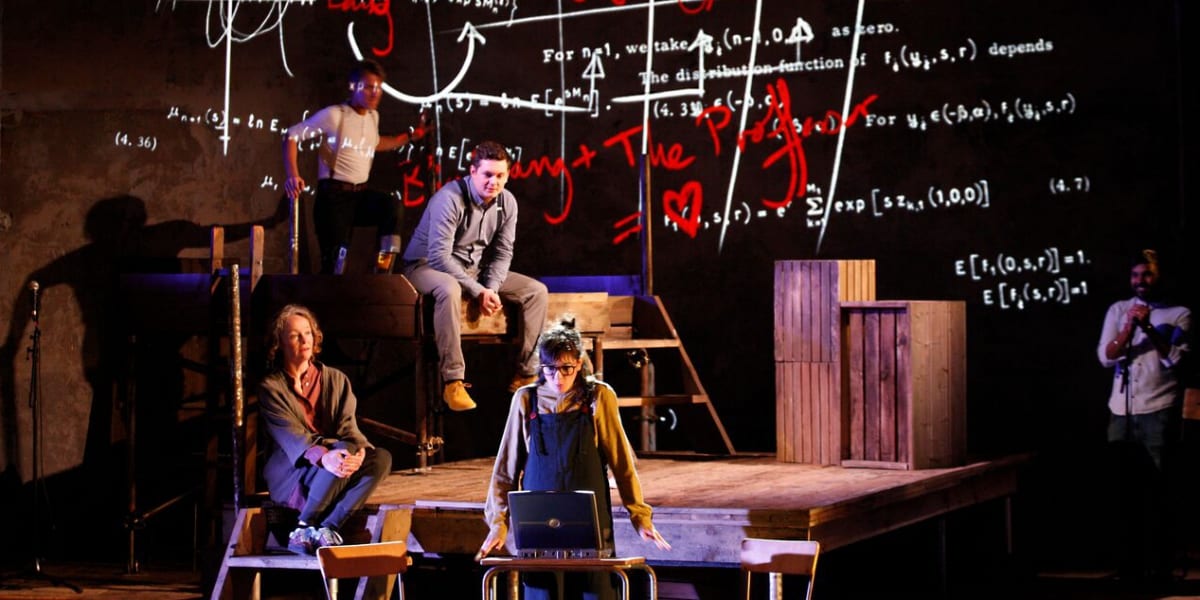Sketching has all the great hallmarks of a James Graham play. There are a lot of characters, and their stories interweave frenetically. Music is used – sparingly but to high dramatic effect. There is a little bit of everything for everyone. What you get out of a James Graham play often depends on what you take into it. My meditative and melancholic mood found perfect reflection in the stories of the people of the city of London, but those in a more celebratory frame of mind will find plenty to enjoy too.
The play is incredibly fast-paced which can at first seem a little dizzying and confusing. There are a great many characters played by only five actors, and it takes time to realise when they transition (usually indicated by a change of a hat or the wearing of glasses or a shawl). Once you understand that – for example – the black hat indicates that Samuel James is now Peter and the white hat that he is the fishmonger it becomes a lot easier to follow the action.
The staging was well managed. The scenes jumped from place to place in London and this was indicated through clever digital backdrops and a judicious use of a very minimal set. Almost the opposite of Quiz – the last Graham production which had one of the most elaborate sets I have ever seen, here Director Thomas Hescott had a lot less to work with. But for me, this was better. In the same way that too many special effects take away from the drama of a film, this minimal set did little to steal attention from the actors.
I did have a few qualms with some of the storylines. For someone who has written so well about politics in the past, it was bizarre to me that Graham allowed anyone to write a storyline that had a key political aide with nothing to do on the night before an election. As politics is what I know, and I know that would never happen, it made me wonder about all the aspects I didn’t know about. Could quantum mechanics really do that? Does the internet really work that way? Why have you mentioned Sadiq Khan in one storyline when you have an incumbent female mayor in another?
I also found the practice of the unused actors in a scene watching on visibly from the side quite distracting. I know a lot of the time they were there to enable prop changes, but it still took away from the drama and I wonder if this could have been dealt with differently?
But these were minor quibbles. Overall this was an affecting and emotional play. The range of topics – including death, loneliness, romantic failures, workers rights and British imperialism in India was varied and any one of them could have been clunky. But Graham seems to have shepherded the less experienced writers well through a process of “Show don’t tell”. Sketching sets out a character’s point of view and asks you to think rather than judge (except perhaps at the very end where a plot twist is both unexpected and breathtaking and you will definitely judge).
I came away from Sketching feeling both thoughtful and entertained. It didn’t lift my melancholy, but it did root it in a drama that reflected my own love for my city and experiences of its harsher aspects.

